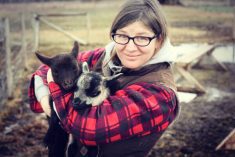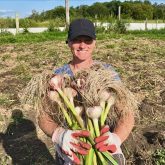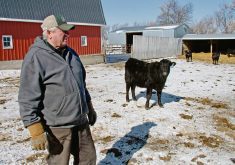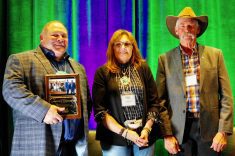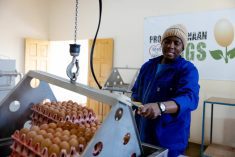Sam Connery-Nichol’s truck is a grey Chevy Silverado with over 600,000 kilometres on it and rust around the wheel wells. She could probably get a new vehicle — one that’s easier to park in town — but she refuses to let this one go.
It was her dad’s truck.
Jeff Connery died in 2012 shortly after Sam returned to working on the family farm near Portage la Prairie. The winter before that, her Uncle Doug also passed away. The farm was left to Sam, her brother Chris and mom Beth.
Read Also

Mazergroup’s Bob Mazer dies
Mazergroup’s Bob Mazer, who helped grow his family’s company into a string of farm equipment dealerships and the main dealer for New Holland machinery in Saskatchewan and Manitoba, died July 6 from cancer.
Beth asked her kids if they wanted to sell the vegetable farm and move on, Sam said. They chose to stay.
“It was always just simple. Like it felt simpler,” Sam said. “I knew that things were very much complicated and going to be difficult for the first couple of years until we got things kind of figured out — where everyone’s place was and whatnot. But farming’s just one of those lifestyle things that’s fantastic. You combine a little bit of family with a little bit of work.”
Connery’s Riverdale Farms
The Connery family was market gardening long before they bought the farm near Portage, Sam said. Her grandpa, Ed Connery farmed first near Birds Hill, then by St. Vital. In the late ’50s or early ’60s, he was tired of farming in the gumbo and went west looking for better land.
The climate and soil along the Assiniboine River near Portage appealed to Ed. He bought a patch of land and started farming, commuting from Winnipeg every day. Sometimes he’d sleep in his old panel van if the day got too late.
They’ve kept that van too, said Sam.
In the ’80s, Ed went into politics, serving two terms as the MLA for Portage. His sons, Doug and Jeff, took over and kept growing the farm.
Sam said she remembers her first farm job as a four- or five-year-old — washing pails behind the strawberry shack near the fields. Her responsibilities grew as she did. Her mom worked in the farm office, so she learned a little of that.
“I always grew up on the farm without the intention of me staying on the farm when I’d grown up,” Sam said.
The family seemed to have the mindset that the boys would run the farm and the girls would move on. Sam went to university but never quite found something she wanted to do for the rest of her life. Her uncle’s death was the catalyst to bring her back to the farm.

Growing pains
Sam said it took a year to get a handle on the office and warehouse, which was her responsibility while her brother managed the fields.
“We have crazy sheds with ridiculously complicated refrigeration to keep the carrots cold in the winter. Who’d have thought you need to keep carrots cold in the winter?” said Sam. “But no, they breath and that generates heat, so you actually even on a -40 day you’re like pumping air conditioning through a shed.”
Her philosophy is to streamline where possible. “Anything I can get my hands on that I can do easier or with less effort, or if I can make it so simple that someone else can do it, I’m all over that.
“I’ve got to pace myself,” she said, adding they start harvesting asparagus in late April or May and barely stop until the carrots come out in October. Then they pack carrots all winter.
Family ties
“There’s days I question my sanity because working with family is hard,” Sam said. “I question my husband’s sanity on a regular basis, ’cause he’s working with his in-laws.”
Sam says her family includes her staff, including the temporary foreign workers who come back year after year.
“The guys are super, super good to me,” she said.
The farm takes on 40 to 60 temporary foreign workers each growing season, most from Mexico and Jamaica. Sam said most of the workers return every year. They get many hugs at each reunion and departure, and they stay in touch.
“I mean, it sucks when your Jamaican workers are sending you pictures of them lying on a beach with their newborn baby, and like, being like, ‘this is what it’s like here,’ and it’s January.”
But Sam’s expanded family also puts more weight on her shoulders.
“I feel so much responsibility,” she said. “I always think of all the workers as my guys ’cause them and their families are relying on us to make sure that life is good at home. And I remember when I didn’t have that responsibility and man it was easy to sleep at night!”
What makes it worth it is seeing pictures the workers send her of improved homes and kids graduating from school. Sam said she has no regrets.








